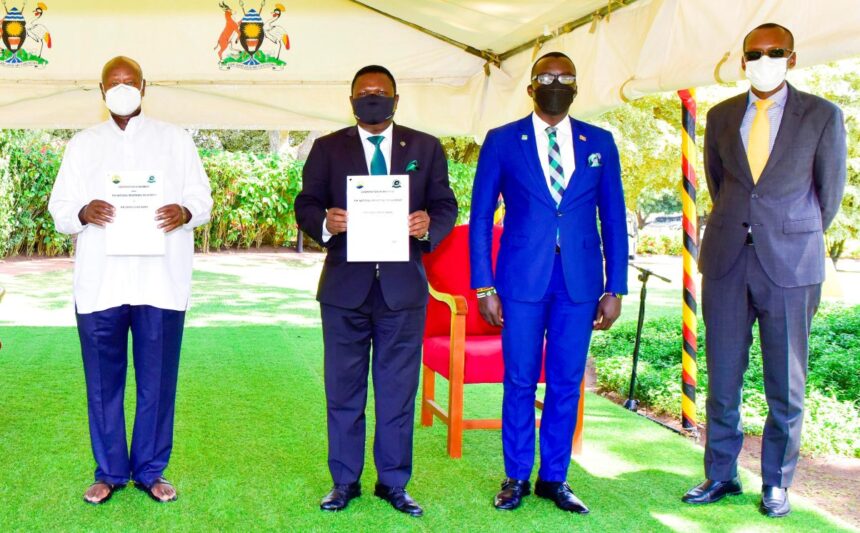The Democratic Party (DP) has officially launched the process of terminating its cooperation agreement with the ruling National Resistance Movement (NRM), signaling a major political shift and placing party president Norbert Mao’s alliance with President Museveni in jeopardy.
The decision was announced following a series of high-level party meetings including the National Executive Committee (NEC) and National Council that convened earlier this week at Soroti May 7 Hotel.
“Based on our findings, it is clear that the time has come to initiate the formal process of ending our cooperation agreement with the National Resistance Movement,” said DP Vice President Fred Mukasa Mbidde.
The termination process began on April 7, 2025, after the completion of an internal assessment period. The party leadership has laid out a comprehensive roadmap that includes nationwide consultative meetings, public caravans, and termination rallies to engage grassroots members and stakeholders.
Mbidde highlighted the importance of inclusivity and transparency in navigating what he called a historic transition.
“This is not just about ending a cooperation agreement; it’s about taking control of our future,” Mbidde said. “We aim to build a more inclusive and transparent political agenda that reflects the values of our members and the people of Uganda.”
To coordinate these efforts, DP has formed a National Organizing Network that will oversee planning and execution of events. Additionally, the party intends to unveil new branding, including a new name, slogan, and promotional materials to mark its next chapter.
The 2022 cooperation agreement between Mao and Museveni has long been a point of contention, with many in the party accusing Mao of sidelining party principles in favor of personal political interests.
While Mao has in the past criticized those seeking to end the agreement, the current momentum within the party indicates a clear and organized effort to sever ties with the ruling NRM.
As Uganda enters a new political season ahead of the 2026 elections, the Democratic Party’s decision could alter the country’s political balance and offer new opportunities for opposition alignment and grassroots mobilization.







